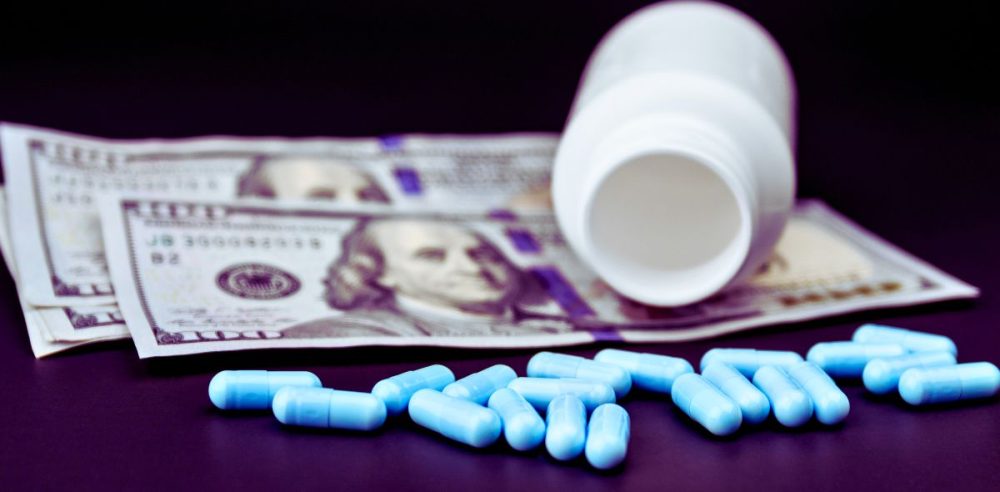Texas communities are reeling from the deadly fentanyl epidemic. As a doctor, I witness this firsthand nearly every day.
Nationally, synthetic opioid overdoses — many of which involve fentanyl — were the leading cause of death in individuals aged 18 to 45 in 2022. In Texas, the Department of State Health Services has termed the crisis a “drug poisoning epidemic,” with the number of deaths doubling from 2017 to 2021. The situation has affected thousands of families, and Texas’ healthcare system, which is already strained, can hardly take the strain of caring for individuals who are the victims of his deadly drug.
Texas’ communities demand that we address this problem head-on. There are a few steps that would make significant headway toward fixing the problem.
First, Texas officials should increase access to naloxone, a life-saving medication already being distributed to first responders in major Texas cities. This won’t solve the problem, but it will save lives.
Naloxone can immediately and effectively save the lives of those who are on the verge of death from a drug overdose, including those accidentally exposed to fentanyl. One state alone — Tennessee, which is not even a border state — estimates over 100,000 lives have been saved from its use. While Texas has received $45 million in federal funds to help expand the use of lifesaving drug, there have been unnecessary delays in getting the overdose-reversing drug to the streets. This must be rectified.
While making immediate harm reduction tools more accessible will help mitigate the effects of this crisis, specific strategic measures must also be immediately put in place to stop the flow of fentanyl into our state. That, after all, is what will solve the problem once and for all. That should start with more funding to law enforcement.
The Texas State Troopers Association recently stated that Department of Public Safety troopers are in critical need of more resources — including manpower, equipment, and resources — to defend the border against cartels, which use advanced weaponry and tactics. These troopers put their lives on the line daily to protect our border, and all they are asking for is the appropriate funding and resources to carry out their mission successfully.
The Texas Department of Public Safety and the Texas Military Department, which counter illegal crossing, trafficking, and smuggling at the U.S.-Mexico border, also require more funding. They are teaming up on Initiatives like Operation Lone Star (OLS) to increase their border control presence and ability to seize fentanyl and other drugs.
Despite scarce resources, the OLS has still apprehended 513,700 migrants, made 44,000 criminal arrests, and seized 489 million doses of fentanyl that would have likely have otherwise come into the hands of Texans. With more resources, they can re-double their efforts and make the great people of Texas even safer.
Texas collaborating with the federal government will also prove critical to addressing the fentanyl epidemic. Encouragingly, the Trump administration has demonstrated a strong willingness to help.
An a recent Texas event, Vice President JD Vance emphasized the White House’s commitment to cracking down on illegal immigration, human trafficking, and drug trafficking in our state. And crackdown they have. In less than three months, the Trump administration has made remarkable progress in sealing the border. Illegal crossings have come to a trickle, and nothing underscores this reality more than the news of refugee centers closing due to a lack of migrants.
That does not mean that the drug cartels are closing shop. In McAllen, for example, the Drug Enforcement Agency recently found $5 million worth of meth hidden in blueberry cases. Sadly, a Customs and Border Protection officer was recently arrested and accused of working for the cartels. $7 million of cocaine was seized at the Rio Grande Valley. The Bexar County sheriff’s office also recently discovered $500,000 worth of drugs on an illegal alien.
Ultimately, the effort to stop the flow of illicit drugs resembles a game of ‘whack-a-mole’—as one threat is neutralized, another emerges. We must persist in tackling this crisis, but we should not pretend that the problem will be eradicated entirely anytime soon. Progress is being made, yet the threat remains. Strengthening border security, enhancing law enforcement resources, and expanding access to life-saving measures like naloxone will safeguard Texas communities.
Dr. Armstrong is a practicing physician in Texas and the owner of Armstrong medical Group. He is a Galveston County commissioner and Vice Chair of the Southern Region of the Republican National Committee. He also serves on the Finance Commission of Texas, where he was appointed by Governor Greg Abbott.


